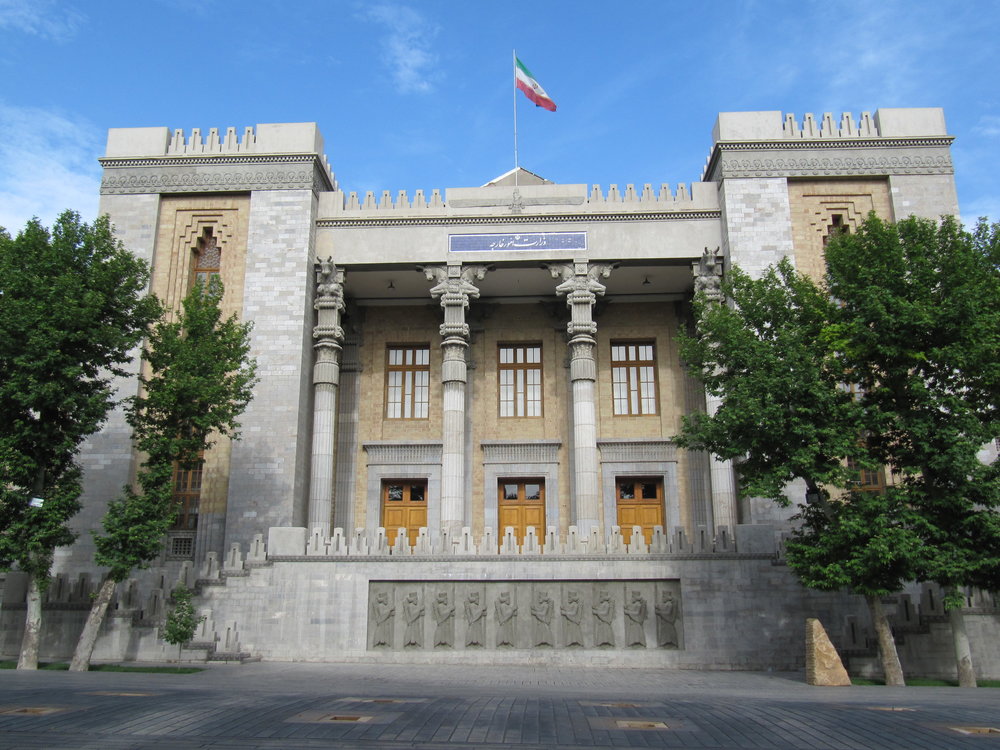Iran rejects NATO concerns over missile program as ‘baseless’

TEHRAN – The Iranian Foreign Ministry has rejected as “baseless” and “repetitive” concerns raised over “Iran’s ballistic missile programme” in the NATO summit in Warsaw.
While commending the signing of the nuclear deal with Iran and its subsequent implementation in its communique issued on July 9, the 28 member-alliance said it remains “seriously concerned by the development of Iran’s ballistic missile programme and continuing missile tests that are inconsistent with UNSCR 2231.”
Bahram Qasemi, the Foreign Ministry spokesman, said, “Iran’s missile capabilities, as reiterated numerous times, not only has nothing to do with the JCPOA and nuclear negotiations, but it is neither in breach of the 2231 resolution.”
“As declared repeatedly, our country’s missile capabilities merely fall within the framework of the Islamic Republic of Iran’s legitimate defensive program, and [the missiles] are by no means designed to carry nuclear warheads,” he added.
Just days before the first anniversary of the nuclear agreement between Iran and six global powers, Iran’s missile program has been once more in the spotlight.
In his first bi-annual report to the 15-member Security Council on the implementation of remaining sanctions and restrictions, the UN secretary general had said, “I call upon Iran to refrain from conducting such ballistic missile launches since they have the potential to increase tensions in the region.”
Ban had said Iran’s ballistic missile launches “are not consistent with the constructive spirit” of the nuclear deal between Tehran and world powers.
Reuters claimed to have seen a copy of the confidential report.
Also, German Chancellor Angela Merkel had told the parliament on July 5 that missile launches by Iran earlier this year were inconsistent with the 2231 resolution.
Alaeddin Boroujerdi, head of the Parliament National Security and Foreign Policy Committee, called the German chancellor’s remarks “politically motivated” and “unacceptable”.
An unnamed official at the Iranian Foreign Ministry had also pointed to Ban’s judgment, recommending him not to yield to political strains put on him.
The UN resolution “calls upon Iran not to undertake any activity related to ballistic missiles designed to be capable of delivering nuclear weapons, including launches using such ballistic missile technology.”
In March, the IRGC test-fired two types of Qadr ballistic missiles during the large-scale drills.
Foreign Ministry says: “As declared repeatedly, our country’s missile capabilities merely fall within the framework of the Islamic Republic of Iran’s legitimate defensive program, and [the missiles] are by no means designed to carry nuclear warheads.”
The launches were the first ones since the signing of nuclear deal with world powers.
The West’s recent missile grievances have come in for a lot of flak from Iranian officials who deem the concerns as unwarranted because none of the missiles test-fired by were designed to carry nuclear warheads in the first place.
Commenting on an earlier missile test-firing by Iran, U.S. Secretary of State John Kerry had said the U.S. and its partners were “prepared to work on a new arrangement to find a peaceful solution to these issues.”
However, Iran’s Foreign Minister Mohammad Javad Zarif replied that the country’s missile program was not up for negotiation with the U.S.
In March 2016 Zarif said, “We stated when the nuclear deal was approved by the Security Council and during the course of nuclear discussions that we will continue with our defense capabilities and that these defense capabilities have nothing to do with nuclear weapons.”
In a tweet on April 2, Zarif also said, “If we had missiles during Saddam’s war on us, they may have discouraged or at least reduced his indiscriminate attacks on our civilians.”
AK/PA
Leave a Comment